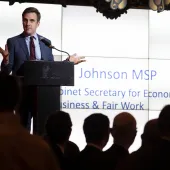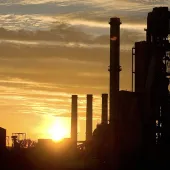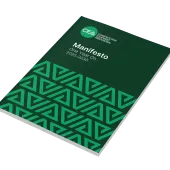NEPSI 2016 Reporting

First published in the February 2016 issue of Quarry Management
Has your site reported?
By Martin Isles
How much does your long-term occupational health matter to you? Do you assume that your workplace conditions are the best possible? Are you doing everything you can to ensure that your health is not harmed by the work that you do? And what about your employers? Are they doing all they should to protect your health whilst at work? Could they do more? Do you know about the NEPSI Good Practices Guide? Have you seen the NEPSI Task Sheets?
2016 is likely to witness – or at least move substantially towards – a resolution of the European Union’s long drawn out deliberations as to future legislation relating to respirable crystalline silica (RCS). Irrespective of the outcome, each of the EU’s 28 member states will have the task of implementing the new European legal requirements into national legislation. There is a firm expectation that a single Europe-wide occupational exposure limit (OEL) will be introduced. Member states will be required to regulate to that limit or introduce a lower national limit. Demonstrating the continued vibrancy of NEPSI is seen as key to a proportionate legislative outcome. Comprehensive ‘reporting’ is, therefore, vital to confirm that NEPSI incentivizes these industries to improve continuously in preventing silicosis, thereby helping protect workers’ occupational health. Reporting deadline: 15 March 2016.
What is NEPSI?
NEPSI is the acronym for the European Silica Network formed by the employee and employer European sectoral associations having signed the European Union’s social dialogue ‘Agreement on Workers’ Health Protection Through the Good Handling and Use of Crystalline Silica and Products Containing it’ in 2006.
This year marks the tenth anniversary of the Agreement that represents 15 industry sectors and their social partner, industriAll – the European Trade Union. Together, the signatory associations represent more than 2 million employees and a business exceeding €250 billion.
Am I involved? Yes, if you work in one of these industries: aggregates; cement; ceramics; container glass; expanded clay; flat glass; foundries; glass fibre; industrial minerals; mineral wool; metals; mining; mortar; natural (dimension) stone; and precast concrete.
Why is NEPSI Reporting important and how can it help me?
If you work in one of the NEPSI industries anywhere in the EU, then NEPSI can help you look after your occupational health.
In the UK, a key benefit to workers employed or contracted to companies who are members of the Mineral Products Association (MPA) is that your employer is a member of an organization committed to achieving and maintaining Zero Harm. Zero Harm means no injuries and, equally, no damage to occupational health. In pursuit of this goal, the MPA and most of its constituent parts are members of European trade associations that are NEPSI legal signatories.
The NEPSI agreement is freely available at www.nepsi.eu and is supported by a detailed ‘Good Practices Guide’ plus a wide range of general and specific task sheets. The guide provides tools to: improve workers’ protection progressively; to enhance compliance with EU and EU member states’ existing workers’ health and safety legislation; and to increase knowledge of the potential effects of respirable crystalline silica (RCS). Each task sheet provides a set of detailed technical recommendations to employers to reduce exposure in the specific industrial settings encountered in each of the signatory industries. The recommendations on each task sheet are complemented by an employee checklist. The continuing success of the NEPSI Agreement relies heavily on a combination of strong leadership and effective workforce engagement.
As members of NEPSI, every two years there is a collection of site-based RCS data that, when consolidated, creates a signature of 12 key performance indicators. On comparison with previous reporting, these KPIs characterize the progress that the industries have made over the years. It is this reporting that makes the multi-sectoral NEPSI Agreement truly unique. Importantly, successive NEPSI biennial reports provide a series of health checks for the signatory industries. In pan-European terms, the KPI trends validate publicly the progress across whole industries in protecting workers from the hazards of RCS.
If you work for a company that is not a member of the MPA, you can still benefit from free access to the NEPSI Agreement; NEPSI Good Practices Guide; and the wide range of general and specific NEPSI task sheets. You can also report voluntarily to NEPSI.
What is being done to promote NEPSI across the EU?
Across continental Europe, a series of eight European Commission-funded national webinars are being broadcast, each introduced by a native speaker of the host country. Each webinar is focused on the latest NEPSI video (with native language voice-over) explaining the hazards of RCS and the consequences of ignoring the advised precautions.
And in the UK?
For the UK, the MPA has intensified its series of ‘Safer by Sharing’ regional seminars. During 2015, six such seminars, along with two Health & Safety Days in the North and Midlands, were held in conjunction with 3M. All these events had the common aim to raise awareness of the:
- Hazards associated with RCS
- Means to control RCS
- Selection and use of respiratory protective equipment
- Use of NEPSI best-practice material.
All delegates have been pointed to www.nepsi.eu for further information. In total, more than 400 managers, supervisors and operational staff attended these events.
Moreover, www.Safequarry.com has now been complemented by the launch of www.Safeprecast.com and its accompanying App. ‘Safeprecast’ includes access to the NEPSI material, as does ‘Safequarry’. All future NEPSI communications will be available via both portals, thus allowing access to a further potential 8,500 employees plus associated supply chain.
Support for the NEPSI social dialogue Agreement and materials continues to receive a high profile at all MPA regional and product meetings. The MPA continues to lobby professional organizations and regulatory policy-makers to recognize NEPSI and the efforts, benefits and achievements of best practice applied by its signatories. Based on an instructive traffic-light system, the MPA’s latest training aid – the ‘Safer by Association’ RCS Audit tool – has been released for the benefit of members, referencing NEPSI best practices, COSHH Essentials and the excellent output from the tripartite Quarries Partnership Team.
What more needs to be done?
There can be no doubt that silicosis is a debilitating disease. Furthermore, it is proven that silicotics are at greater risk of developing lung cancer, so there can be no room for complacency. Companies are urged, therefore, to review their RCS-preventive actions with a view to upgrading, where necessary, their preventative measures. For some, this may dictate a step change in production, processing and maintenance activities.
Caveat emptor
Those responsible for purchasing new or re-engineered plant and equipment bear a heavy responsibility to ensure that their specifications focus ever more strongly on minimizing dust generation and optimizing dust collection and/or suppression. The corporate social responsibility of companies, in relation to RCS, will be scrutinized and judged with increasing vigour now and into the future. Uncontrolled dust emissions can no longer be condoned as an ‘inevitable’ consequence of RCS-generating industrial processes. The principles of ‘Safer by Design’ can and should be applied to all forms of plant and equipment.
Irrespective of the appropriateness of the impending European legislation, the NEPSI industries as well as those closely allied – notably construction – will be judged by their abilities to prove themselves worthy and responsible by banishing silicosis to history. The NEPSI Agreement is a key element to successful negotiation with the European Commission.
Expecting workers to perform production, processing or maintenance tasks in dusty workplaces must be consigned to history. In exceptional cases, there may be circumstances where such working continues to be permitted, but only under the total expectation that employers will supply competent supervision to ensure the supply and wearing of adequate respiratory protective equipment, properly fitted, hygienically stored and maintained – and replaced as necessary.
Where can I get help on NEPSI Reporting?
A six-minute instructive audio-visual presentation on NEPSI Reporting is available in English at: www.nepsi.eu; whilst direct personal assistance is available by emailing: helpdesk@nepsidata.eu
The deadline for reporting is 15 March 2016. Make certain you do not miss it!
The author, Martin Isles, health and safety special advisor to the Mineral Products Association and member of the international NEPSI Council in Brussels, represents and advises UEPG, the European Aggregates Association, on respirable crystalline silica strategy.
- Subscribe to Quarry Management, the monthly journal for the mineral products industry, to read articles before they appear on Agg-Net.com








